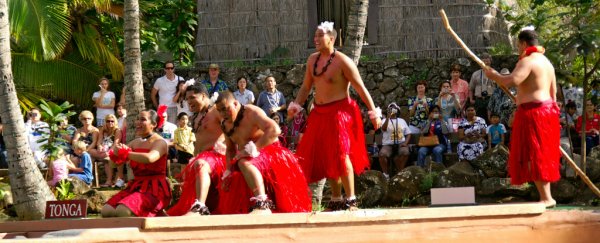Tonga was once at the centre of a vast trading empire stretching 500,000 square kilometres (193,000 square miles) across the Pacific.
Stone tools imported during the last 1,000 years from Fiji, Samoa, and the Society Islands reveal that the maritime empire of Tonga served as a hub through which prehistoric people exchanged products and political ideas, according to a study.
From about 1200 AD, the state of Tonga integrated the archipelago under a centralised authority and emerged as a unique maritime empire which engaged in long distance economic and political commerce.
Seeking to establish the extent of Tonga's maritime polity, Geoffrey Clark of the Australian National University and colleagues geochemically analysed stone tools excavated from places central to the Tongan seat of power.
They focussed on artefacts associated with stone-faced chiefly tombs.
The analysis revealed that about two-thirds of the tools were imports from Fiji, Samoa and the Society Islands, and that exotic stone artifacts likely represented an important source of political capital to Tongan elites.
The stone tools found in Tonga came from Fiji, Samoa, and Tahiti, 2,500 km (1,553 miles) away.
Modern Tonga is a constitutional monarchy, a Polynesian state made up of 176 islands.
The study, "Stone tools from the ancient Tongan state reveal prehistoric interaction centers in the Central Pacific", is published in the journal PNAS.

This article was originally published by Business Insider.
More from Business Insider:
